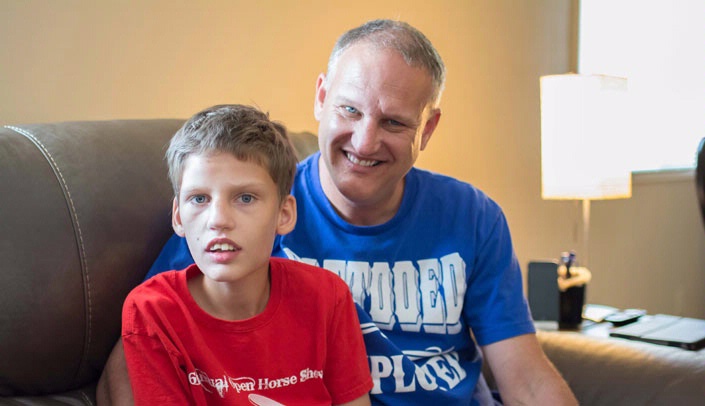UNMC is seeking 25 patients for a clinical research study that investigates the use of cannabidiol in patients with drug resistant epilepsy when taken in addition to current anti-epileptic drugs.
Study participation
A UNMC committee made up of clinicians and scientists will determine who is selected to participate in the study. As principal investigator, Dr. Madhavan will be involved in oversight of the clinical study but will not be part of the committee that reviews inclusion/exclusion criteria for potential participants.
To be considered for the study, patients must have treatment-resistant seizures even with the use of currently available treatments, be between the age range of 1 to 60, be a resident of the State of Nebraska and have their records sent for review.
Subjects who are eligible to participate would have up to 15 in-person visits and seven phone call or email visits. Subjects’ anti-epileptic drug levels will be tested to monitor for drug interactions. Depending on clinical outcomes, the study may be extended beyond two years.
Study participants will receive pure cannabidiol in a liquid form. Participants will receive two doses of cannabidiol each day. The dosage will vary depending on the weight of the subject.
For information about the study, call 402-559-4335.
This study is listed under Institutional Review Board #719-15-FB.
The study was made possible by Legislative Bill 390 sponsored by State Sen. Sue Crawford of Bellevue. The bill, which the Nebraska Legislature passed in 2015, authorized UNMC to conduct the study. It allocated $500,000 in state funding to UNMC to cover the clinical and administrative costs of the study. GW Pharmaceuticals, which is based in the United Kingdom, is supplying the investigational medicine being used in the study, called Epidiolex®, for free.
Cannabidiol is a cannabinoid that is extracted from the Cannabis sativa plant and is distinct from tetrahydrocannabidiol (THC), the cannabinoid that is responsible for the drug-related high. Epidiolex is a plant-based pharmaceutical formulation of pure cannabidiol. GW’s plant-based pharmaceutical formulation of pure cannabidiol contains only trace amounts of THC.
A recent study using GW’s Epidiolex for patients with Dravet syndrome, a rare genetic form of epileptic encephalopathy (dysfunction of the brain), demonstrated a 39 percent reduction in seizure frequency compared to 13 percent for the placebo, said Chris Kratochvil, M.D., associate vice chancellor for clinical research at UNMC and vice president of research for Nebraska Medicine, UNMC’s clinical partner.
“There are individuals in Nebraska who suffer from treatment-resistant seizures for which currently available treatment options have been ineffective,” said Deepak Madhavan, M.D., assistant professor of neurological sciences at UNMC and principal investigator for the study. “Clinical studies involving Epidiolex have shown promise in treating individuals with these seizures, and this study will broaden our knowledge of the safety and effectiveness of cannabidiol in treating these patients.”
Doctor-to-doctor letters will be sent to neurologists and pediatricians across the state outlining details of the study, including the inclusion/exclusion criteria for patients and the necessary records and paperwork needed for review. Patients must work with their provider to have records sent if they are interested in learning more about potentially participating in the study.
Information gained from the study will be used to better understand the potential role of cannabidiol as a novel treatment for epilepsy. The hope is that this information will ultimately facilitate development of approaches to better treat patients with treatment-resistant seizures.
